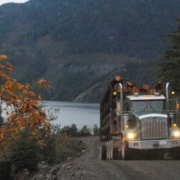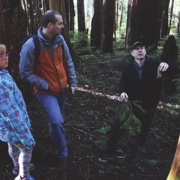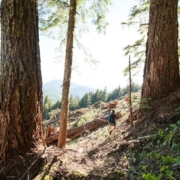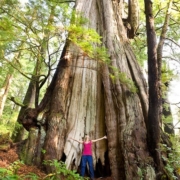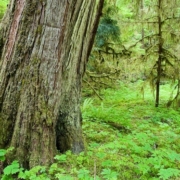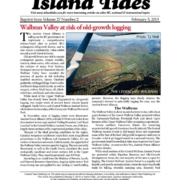Thanks to the generous support of donors, the Ancient Forest Alliance has quickly grown to become BC’s leading grassroots organization working for the protection of endangered old-growth forests and forestry jobs across the province.
Over the past several years since the AFA was founded, local businesses, green enterprises, artists, environmental foundations, and other organizations have bolstered the AFA’s important work through many fundraising initiatives such as yoga studio Karma Classes, gift raffles, ‘Haircut not Clearcut’ salon fundraisers, in-kind donations, proceeds from products or services, music festivals, concerts and special benefit events.
Thanks to our 2014 Donors!
In 2014, the AFA received significant support from a variety of granting programs and creative fundraisers. We are very grateful for the major support provided by Mountain Equipment Co-op’s Community Contributions Grants and MEC Victoria’s vote of preferred organizations, LUSH Handmade Cosmetics’ Charity Pot program and employee vote of preferred organizations, Patagonia Victoria’s 1% for the Planet contributions, Evergreen Foundation’s funding for a Douglas-fir ecosystem restoration project, Habitat Conservation Trust Foundation’s grant supporting the Avatar Grove boardwalk construction, and Ball Foundation’s grant towards our nature and climate campaign work. In March the annual Tree Huggers’ Ball dance party fundraiser, organized by the UVic Ancient Forest Committee, once again raised significant funds and awareness for the AFA.
To celebrate Earth Day, Grassroots Eco-Salon organized a ‘Haircuts not Clearcuts’ fundraiser, North Park Bike Shop and Café 932 raised funds from the day’s sales, and Sea Flora Wild Organic Seaweed Skincare donated proceeds from an Earth Day seaweed hike.
The AFA’s Boardwalk Fundraiser in June, hosted by Stickleback Restaurant, received support from businesses such as the West Coast Trail Express, Soule Creek Lodge and Pathfinders Design & Technology.
This summer, the Heritage Boardshop donated 50% of entry proceeds from the Salt Spring Skate Competition, the new owners of Vorizo Cafe on Hornby Island pledged support and displayed AFA posters and educational newsletters in the café, and the popular Tall Tree Music Festival once again came to Brown Mountain near Port Renfrew and lent its support to the AFA’s work to protect old-growth forests near Port Renfrew and beyond.
Throughout the year, yoga studios such as Moksha Yoga Victoria, Ananda Ayurveda, and Feel Good Yoga hosted their own Karma Class fundraisers, clothing company Hemp & Co. produced a variety of unique and popular AFA clothing items, West Coast Wonders pledged support from their guiding operations, local designers Emma Glover Design and Cat Abyss Clothing lent support through their creative work, and Port Renfrew Marina hosted many boardwalk volunteers during the boardwalk construction workparties. Banyen Books & Sound has been assisting the AFA’s efforts through sales of AFA cards at their store, and many businesses – Hoyne Brewing, River Road Chocolates, Cottlestone Apiary, Beehive Wool Shop, Olive the Senses, Third Eye Pinecones, Nightingale Naturals, Two Blooms Organics, The Copper Hat, Full Circle Studio Arts, Tonic Jewelry, LUSH, and Escents Aromatherapy – donated items to our fall raffles.
This holiday season, Inspire Hair Design provided funds from every appointment over the month of November, Trees Organic Coffee House generously offered space in their Yaletown café for the AFA’s holiday sales booth, Bon Macaron Patisserie, Cordial Wildcrafted Consumables, La Tana Bakery and Pedersen’s Rentals donated items to our year end events in Victoria, and Eternal Abundance Grocer and Vegan Café began selling AFA merchandise to help raise funding and awareness among their customers.
We look forward to working with many more such supporters in 2015 and beyond as we pursue our ambitious goal of ensuring legislated protection for endangered old-growth forests across the province!
For more information on supporting the AFA as a business or organization, see here.
For a full list of businesses, artists and organizations that have supported the AFA, see here.


